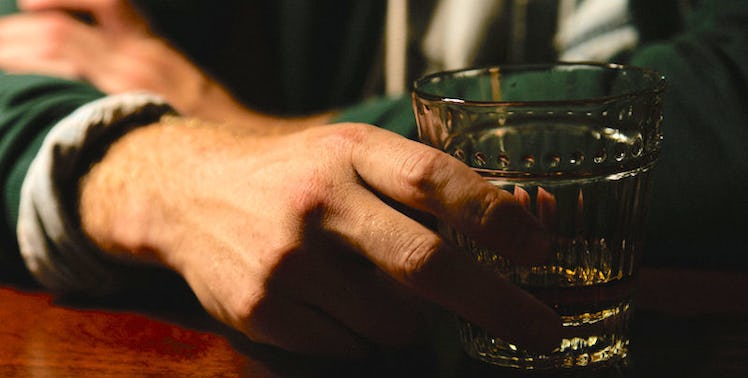While it's rare, some people are lucky enough to spot and put a stop to their addiction when they are still young enough to have a fighting chance at living a happy and fulfilled life.
I was one of these lucky ones.
Whether you are reading this as an addict currently suffering from addiction, not knowing where to turn, or as someone who is currently in recovery, I'm here to tell you about my experience.
I may not have all the answers you're seeking, I don't pretend to have any.
But as someone who has been through accepting a personal addiction, perhaps my experience could help you navigate your own.
When I was 23 and just out of college, my drinking took a very dark turn. I knew I couldn't stop on my own. My own actions started to feel like they were outside of my own control. This was probably the scariest thing about addiction, for me.
When you aren't in control of your own actions, it feels almost impossible to assume responsibility for them.
This causes frustration in the people around you, who just want you to see what you're doing, take responsibility and be able to stop.
I started to wish that there was something or someone outside of myself who could just tell me what to do and how to live, but taking that step was going to require a miracle.
There's nothing I wanted less than to admit I felt totally and utterly defeated by something that everyone else I knew seemed to handle with such easy grace.
Unfortunately, almost anyone caught in the grip of addiction has to concede on some level to a higher authority -- whether it be spiritual, medical or familial, in order to eventually get control of their lives again. And I was no different.
My advice, which I offer with a huge grain of salt (because there is no ONE way to get help for addiction) is to take the first step toward getting help by yourself.
The reason I think it's best to take the first step to getting help by yourself is this: As difficult as getting help for addiction is, taking that step toward getting help on my own was the only action I'd taken that I was proud of in a very, very long time.
There is a strange power in admitting defeat, and in turning to ask someone for help, in saying "I can't beat this myself."
People who are young and getting sober often face the question of whether or not to tell their parents. I told mine, but not until I was weeks into getting sober. While I think it kept me accountable, I also question whether or not it was any of their business.
Ultimately, it's up to you, but I will say that telling your parents is a loaded thing. It's loaded with expectations, with history and with emotions, and because getting sober is such a personal journey, sometimes it's better to keep that for yourself.
Over time, you might find that keeping your sobriety to yourself is a boundary you're grateful for, especially since most families aren't great at practicing healthy boundaries with each other.
By telling your parents, you also run the risk of hearing their unsolicited feedback, which can range from "don't you think you're being dramatic?" to a smothering level of support.
Since getting sober can be emotionally overwhelming, I would strongly suggest not adding to the emotional burden you'll be carrying by taking on the emotions of your parents as well.
You might say, "Oh I don't care what my parents think, I just want to be honest."
...If you want to be honest, start with yourself.
How to involve your parents in the conversation:
If you really think your parents opinions don't affect you personally, consider the fact that a newly-sober person is the closest thing to a walking open wound.
At the end of the day, you'll have your own reasons and your own path for choosing whether or not to tell them, and you may need their help to get to a detox or a rehab, and in these cases, the choice of telling your parents makes complete sense.
Jeffrey B. Rubin, PhD, a practicing psychotherapist and teacher of meditation in New York City suggests starting with the facts of the situation.
He tells Elite Daily it's best to stay clear and concise with your language. Say something like, "Mom and Dad, I need your help with something. I need you to be patient and compassionate. I need help with excessive substance use. I want to join a program and your support will make it easier."
If your parents start to object -- or offer advice that you don't want or need -- proceed to let them know by asking them to hold off.
According to Dr. Rubin, a simple, "I am vulnerable now and judgments or lectures won't be helpful," should get the message across.
Above all, know that you are not alone in your struggle with addiction. Help is available to you, whenever you are ready to ask.
